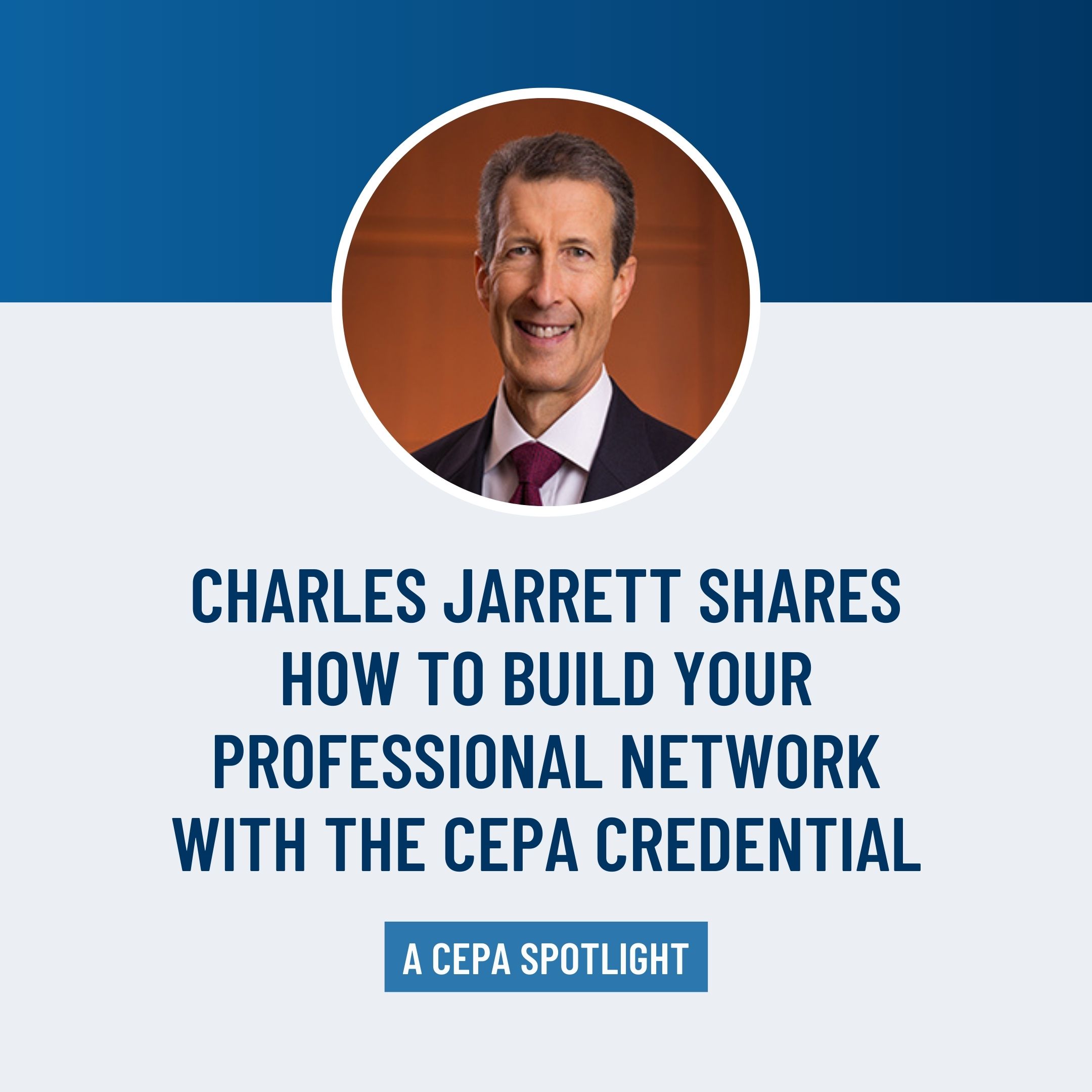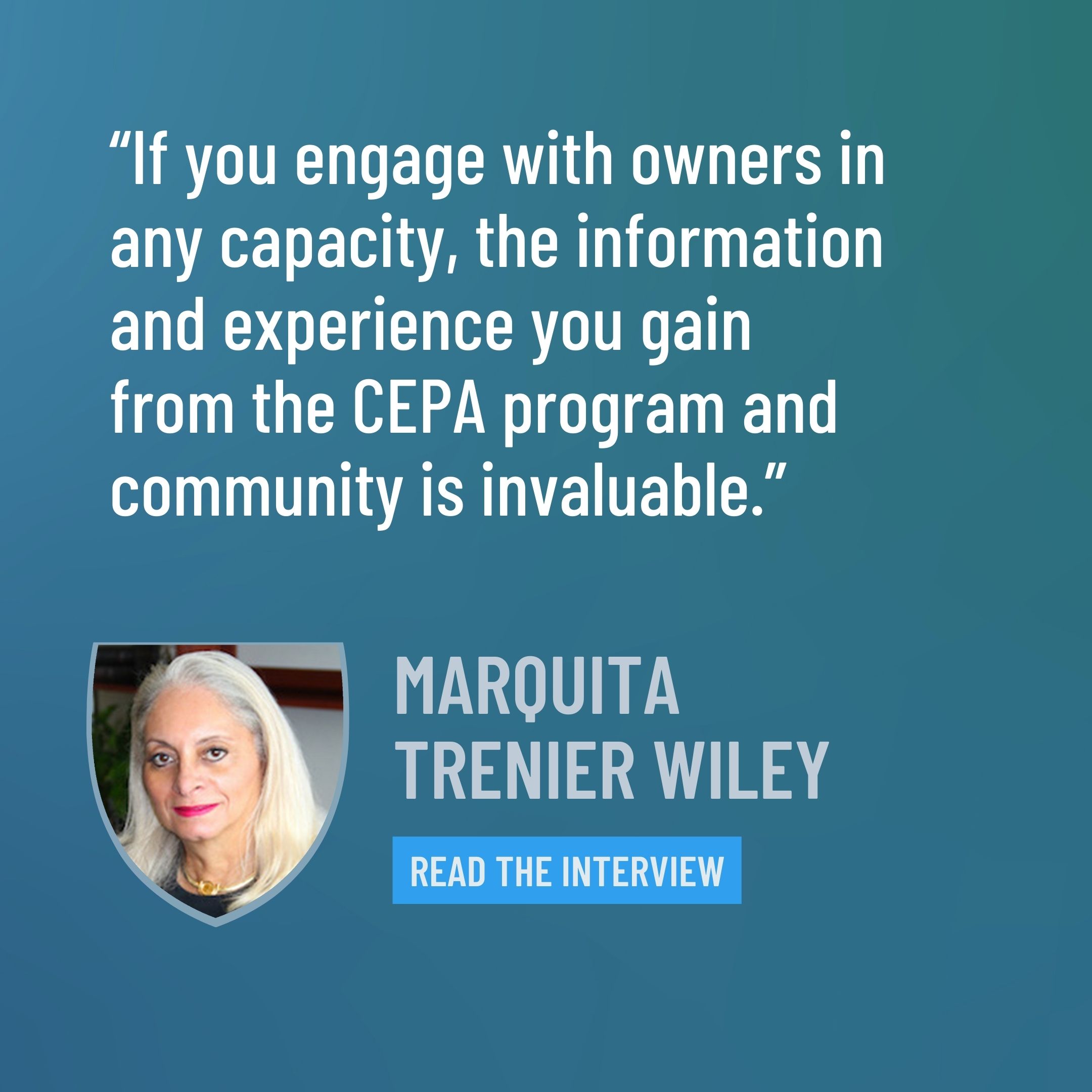
THE EXIT PLANNING BLOG
Keep up-to-date with exit planning, succession planning, industry trends, unique specialty insights, and useful content for professional advisors and business owners.
Share this
How to Utilize Your CEPA Credential: a CEPA Spotlight with Steve Wittal
by Colleen Kowalski on February 9, 2023

With over 3,500 Certified Exit Planning Advisors in the marketplace, Exit Planning Institute has an expansive network of advisors, business owners, and thought leaders. Our CEPAs provide life-changing resources, tools, and education for business owners looking to exit their businesses or build value in their organizations.
We spoke with Steve Wittal, who earned his CEPA credential in April 2021, to learn how his advisory practice has grown since becoming a CEPA.
Meet Steve Wittal
Steve Wittal is the founder of Navisant, a Scale to Exit Advisory, which helps CEOs build exitable companies — companies that are more valuable and easier to run. He does this through high-performance incrementalism: reverse-engineering aspirational goals into actionable, achievable game plans.
Setting out to systematize and scale a small family business early in his career, he eventually led sales growth at a $350M+ company, guiding a team of 100+ account executives in locations across North America. When he closed the largest deal in the company’s history, valued at $180M, it brought into focus his core talent: reverse-engineering aspirational BHAGs into tangible outcomes.
Today he helps CEOs and their leadership teams build exitable companies, even when selling is not part of their vision. He believes firmly that exitable businesses outperform all others — both from the perspective of a prospective buyer and the people running the business. Through his Leader’s Playbook series, as well as fractional engagements, he works as a trusted advisor to provide clarity around leading a business, increasing its value, and making it easier to run.
A die-hard sports fan (with hockey at the very top of his list), he leverages best practices from his favorite teams to inspire his business thinking and methods. He enjoys sharing the occasional hockey metaphor — particularly in his biweekly newsletter, The Scorecard — and is continually inspired by winning playbooks to build game-changing strategies, on and off the ice.
How long have you worked with business owners?
Steve: I started my practice in the spring of 2019 after a successful career as a corporate sales leader. In late 2018, I happened upon an organization called Sales Xceleration. The founders, Mark Thacker and Chad Meyer, inspired me to give solopreneurship a try.
With my natural curiosity about businesses and their owners, and coming off a lengthy career in corporate, working with business owners has been nothing short of amazing. I get to help people whom I find interesting and inspirational. I feel like I’m part of their journey, and it’s enormously rewarding.
What made you decide to work with owners on what is likely the largest financial transaction in their life?
Steve: I’m a competitive guy. I like sports, especially hockey and my beloved Toronto Maple Leafs. Over the years, I’ve watched the Leafs win, and I’ve watched them lose. I prefer winning. This work gives me the chance to help business owners win — and sometimes, win big.
What made you want to become a CEPA?
Steve: Businesses, and the people who run them, fascinate me. In the fall of 2020, I was engaged by a sizable Canadian e-commerce firm to help them reimagine their sales process and messaging, then work alongside the leadership and sales teams to implement these changes. The business was growing rapidly, and leadership was concerned about how effective the sales team was at converting sales on their secondary channel, inbound phone sales.
While this was underway, the client asked me to help them better define their overall business strategy. We started by crafting the vision — the combination of a new purpose statement and clear values, along with an aspirational 10-year goal.
During that process, it was revealed they had been in talks to sell a portion of the business to their primary wholesale vendor, who wanted to vertically integrate to the point of purchase. Their challenge was the gap between what the vendor was offering and the value the client had in mind. They asked how I might help them close the gap.
I went in search of methods or resources to help and stumbled upon EPI and the CEPA credentialing program. It was a perfect match.
What was your biggest takeaway from the CEPA program?
Steve: There were two. The first was: Exit planning is a good business strategy. The idea of planning for the exit can be daunting, but if it’s positioned as an effective strategy that you can begin long before you’re planning to exit, it’s a much easier concept for business owners to get their heads around.
The second was when I realized the enormous need for this expertise. My parents had a business they closed because no one wanted it when they were done running it. People start a business because they have a dream they believe the business can fulfill. What they don’t realize is how intentional you need to be about building and running the business.
Since earning your CEPA credential, how has your practice grown?
Steve: There are two main ways the CEPA program has driven growth in my practice.
First, my practice started with two offerings. Fractional sales leadership and strategic planning. These two disciplines are closely linked. Businesses of all sizes need to plan, and all plans contain the requirement for growth. The CEPA program provided another lens through which to view the planning process. It prompted questions such as, “Where were the business and owner in terms of time horizon? Had they done any planning around their exit?” This lens added tremendous value to every existing client engagement and made me more attractive to prospective clients. Simply put, the CEPA credential differentiated me and made my work more valuable in the eyes of my market.
Second, the Value Acceleration Methodology itself has enabled me to stay engaged with my clients longer. There is simply much more value I can now add. Longer engagements drive better ROI on my own sales and marketing efforts, which means I need to find fewer clients.
How do you effectively work on an owner’s advisory team during their exit?
Steve: Depending on the need, size, and complexity of the business, there are two ways I participate on an owner’s team.
First, leading the strategy development for the business. This is core work for me, and planning is an area I’m constantly developing as a discipline within my practice. In this capacity, I lead the team that is helping the owner build the plan for value creation and, ultimately, the exit.
Second, building the growth plan and/or leading the sales team. In this capacity, I play a key role in defining the activities of the plan that will drive growth and enhance the value of the business.
Are you interested in becoming a CEPA? Learn more about the Certified Exit Planning Advisor credential and see how you can become a CEPA here!
Follow our socials for more exit planning content and strategies.
Share this
- Blog (548)
- CEPA (431)
- exit planning (249)
- CEPA community (188)
- Business Owner (175)
- Exit Planning Summit (99)
- EPI Chapter Network (89)
- Value Acceleration Methodology (81)
- Exit Planning Partner Network (76)
- EPI Announcement (50)
- Content (48)
- Webinars (37)
- Excellence in Exit Planning Awards (34)
- Marketing (30)
- 2024 Exit Planning Summit (28)
- 5 Stages of Value Maturity (26)
- Books (24)
- EPI Academy (24)
- EPI Team (22)
- Exit Planning Teams (22)
- Leadership (21)
- 2023 Exit Planning Summit (20)
- family business (20)
- women in business (19)
- Intangible Capital (18)
- Exit Options (17)
- Black Friday (16)
- CPA (15)
- Walking to Destiny (15)
- Chapters (14)
- State of Owner Readiness (14)
- charitable intent (13)
- Chris Snider (12)
- National Accounts (12)
- Small business (12)
- personal planning (12)
- Financial Advisors (11)
- Season of Deals (9)
- 5 Ds (8)
- About us (8)
- Podcast (8)
- Scott Snider (8)
- Insiders Bash (7)
- Christmas (6)
- Exit Planning Content Library (6)
- Case Studies (5)
- Owner Roundtables (5)
- Three Legs of the Stool (5)
- Value Advisors (5)
- financial planning (5)
- Awards (4)
- Circle of Excellence (4)
- EPI Thought Leadership Council (4)
- Exit & Succession (4)
- Five Ds (4)
- executive training (4)
- DriveValue (3)
- Owners Forum (3)
- author (3)
- forbes (3)
- Exit Is Now Podcast (2)
- Peter Christman (2)
- Veteran (2)
- Whitepapers (2)
- Annual Exit (1)
- Business Owners Forum (1)
- SOOR (1)
- business consultants (1)






